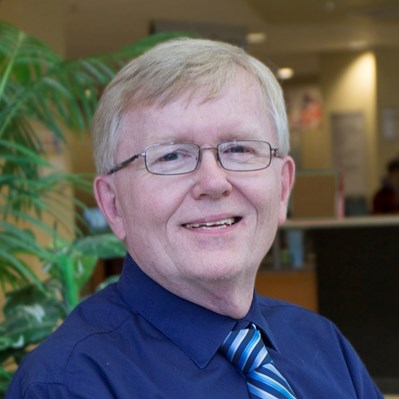
Professor of Political Science, Truckee Meadows Community College
Reno, Nevada
Office Representing: Online Learning
Fred Lokken has been a member of the Board of Directors of the Instructional Technology Council (ITC), an affiliated council of the American Association of Community Colleges (AACC), for the past 14 years. He is currently chair-elect, and chair of the public policy committee. In addition, he conducts an annual national survey on distance learning in community colleges. Lokken has more than 20 years of administrative experience in distance learning, most recently as dean of WebCollege at Truckee Meadows Community College in Reno, Nevada.
How did you first get interested in or involved in higher education issues?
"I have always had a strong interest in the politics—and policies—of higher education, especially as an advocate for the community college movement. As an eLearning administrator, I provided leadership in launching our institution's online courses and degrees. I dealt with the significant challenges of breaking new ground in the field and found benefit in working with others dealing with the same issues. As a member of the ITC Board of Directors, I gained a national perspective to the many challenges and inaugurated the annual ITC Distance Learning National Survey to gather pragmatic data in support of program development and enhancement. This groundwork has permitted me to develop a more national reputation, and has led to interviews and speaking engagements related to the distance Learning field. Like anyone else, I have become involved in related higher education issues, in hopes of providing leadership, understanding and a clear pathway for both identifying and solving problems. Since the 2008 reauthorization of the Higher Education Act (HEA), I have been focused on the specific regulation areas that emerged for distance learning. The state of Nevada was one of the first five states to embrace the National Council for State Authorization Reciprocity Agreements (NC-SARA). Community colleges face special challenges since we serve so many online students in higher education but do not normally have the budget and staff that universities have."
Why did you apply to be a part of the Higher Education Committee of 50? What drew you to this opportunity?
"Financial aid issues since the HEA reauthorization in 2008 have been significant for distance learning. This committee provides an opportunity to have a national dialog to identify and discuss an array of financial aid-related topics and issues. As I previously indicated, I have long been an advocate for community colleges and their role in higher education. Financial aid helps to open the higher education door to many who otherwise could not afford to attend. The positive impact for first-generation, underrepresented, and active adult learners is incredible. This is a real opportunity to provide national leadership and to identify clear pathways for success in both identifying and solving problems. "
Leadership roles with professional associations:
Membership(s) held with other professional associations: